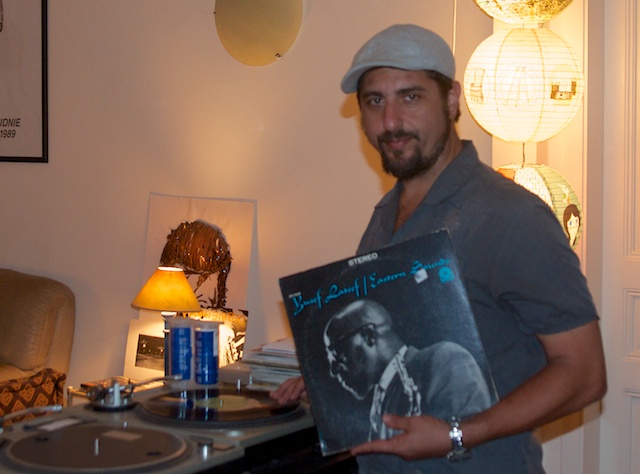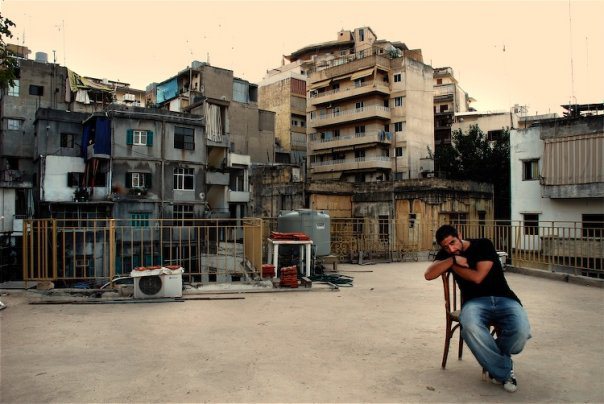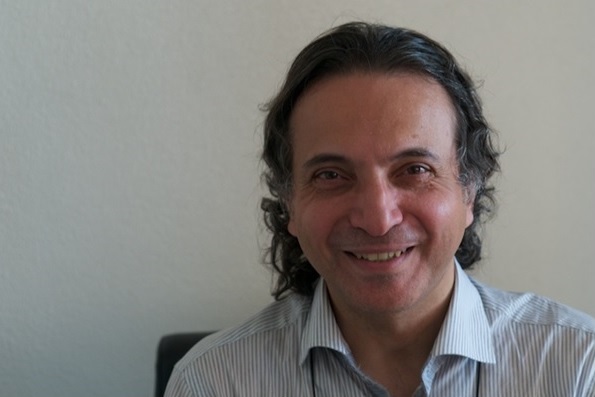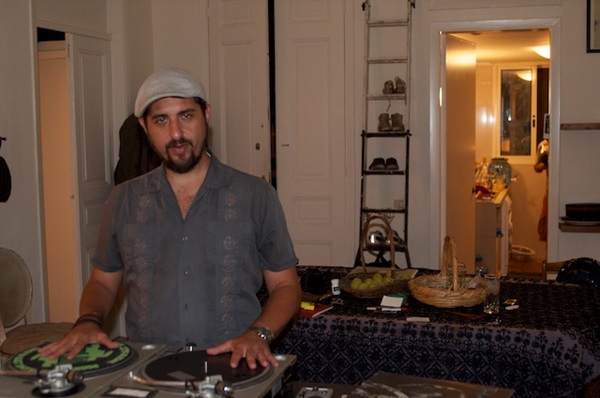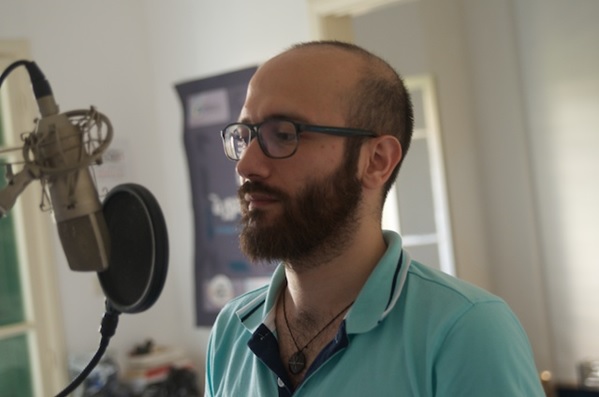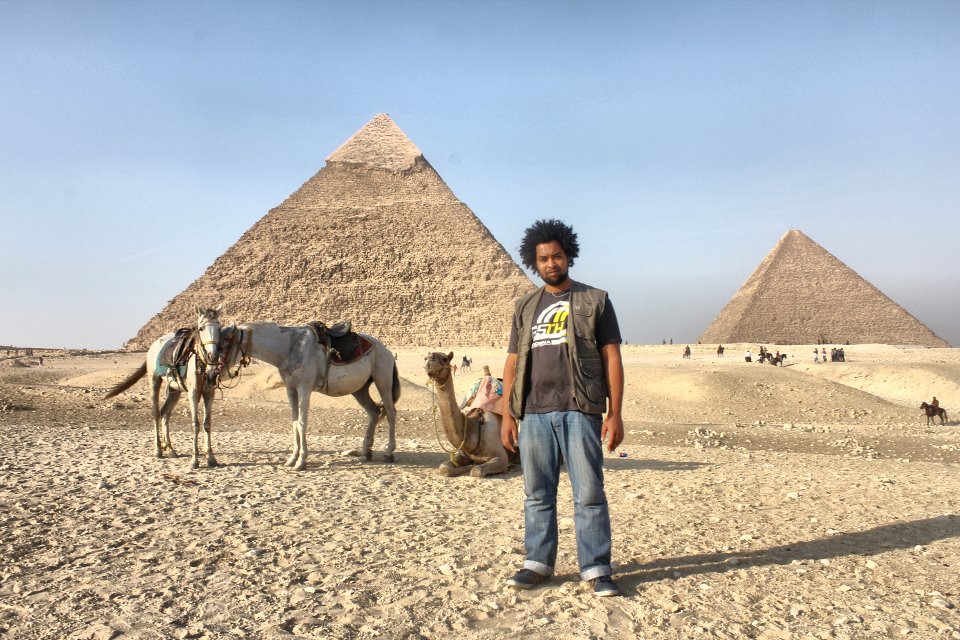Jackson Allers is a cultural journalist and filmmaker who's work in the Arab world has centered on music sub-cultures - namely Arab hip-hop. From his base in Beirut, Lebanon, Allers has studied the evolution of Arab rap throughout the region, from Iraq to Tunisia, but has focused the majority of his focus on the Levant. He runs the cultural blog Beats and Breath
(http://jacksonallers.wordpress.com/about), and his work has been cited frequently in academic circles Oxford University Press). He continues to make film and radio documentaries including a recent commission by the BBC to do a 30-min. documentary about Arab rap. Banning Eyre met Allers at his house in Beirut. Here’s their conversation.
B.E.: To start, introduce yourself.
J.A.: My name is Jackson Allers. I have lived in Lebanon for the last seven years. I am a music journalist. I'm also a filmmaker. And increasingly I've been moving my media work more towards multimedia storytelling. I am also working on a book. The idea for the book came in December 2007, after I had spent a year-and-a-half or two in the Lebanese hip-hop scene. It seemed imperative to the development of this cultural phenomenon to write a book. I still don't actually know exactly how to finish that process, because it is so hard to tell where this music is going.
You can't really do a definitive history of Arab rap because it's still such an evolving phenomenon. So that's not my goal. I've spent a lot of time with the key elements of what I would consider the core of the Arab Middle East—that is Egypt, Palestine, Jordan, Syria, and Lebanon. I felt like this was the crucial area as I learned more about the evolving history of Arab rap. Because, let's be honest; it started in the Maghreb—Algeria Tunisia, and Morocco. That’s because of the French colonial influence. France has the second-biggest hip-hop market in the world, so it was sort of natural in the late 80s and early 90s, considering Maghreb Arab suburban populations of Paris and Marseille, that this music would filter back to North Africa and take root there.
But the real Arabic language rap or hip-hop that evolved started in the region that I'm talking about, specifically in Palestine and Lebanon more than anywhere else. Although most people acknowledge the first rapper in the region as Abu Yusif, who was from Jordan. What he did was more in the shaabi, tarab tradition; it wasn't really rap as we know it with this movement now.
But my concept for this book really has to do with personal anecdote as it relates to the overall analysis of what's going on, for example, with identity issues in regards to the use of aliases. Those aliases become vehicles for expressing things in areas where you might have to worry about censorship, which has been the case in the Arab world for so long.
So it has to do with identity. It has to do with linking to past poetic traditions in the Arab world, the 13th century poetic tradition of zajal, which a Gulf Arab tradition that moved up into this area I'm talking about. Zajal was really the first, Arab incarnation of battle rap, if you want to call it that. It's Arabic in the local dialect, town criers and poets with full bands backing them, sort of going at each other poetically. These are traditions that some of the Arab rappers are focusing on as things that they can look at in much the way African Americans look to West African griot traditions. So the Arab rappers of today are looking towards other older Arabic poetic traditions that they can grasp onto and make their own.
Because as I'm finding out—and something that's a big focus of my book—concepts of authenticity are crucial. Abou Nidaa Mrad from Antonine University gave you a strict historical notion about what is “traditional.” Arab rap is a highly combustible new cultural form that challenges those traditions because they [rappers] don't see themselves as any less Arab than [musicians of] any other musical tradition that preceded them.
B.E.: I’m interested in zajal. You say the poets were backed by full bands?
J.A.: Yes.
B.E.: And did their poetry have to rhyme?
J.A.: Most of the time, yes. It does rhyme. There are elements of zajal where rhyming is incredibly important. But we have to understand Arabic traditions, pre-Koranic Arabic as opposed to Arabic as it existed after the Koran. The language doesn't necessarily rely on the same rhyming concepts. It can be more like long-form prose, and still be effective. Rhyming is definitely a part of that, but it's not necessarily the rhyming couplet idea. It's not rigid in that way. Arab rappers are sort of bringing in the traditions that they've understood from the past development of rap. It's not necessarily a conscious decision. There is definitely this idea of rhyming in Arabic. I'm not sure there's a language that is more rich in meaning. Perhaps the Iranians would argue that. But I think Arabic is an infinitely practical poetic language that lends itself incredibly well to rapping.
In my own study of the Arabic language, I'm having to translate lyrics and really decipher what is already hard for Arabic speakers to decipher, for myself. I'm realizing that I come from a very deep understanding of American hip-hop traditions, and I'm finding that these Arab rappers, in the areas that they are discussing or the topics that concern them, are, I dare say, some of the best lyricist I've ever heard in my life. Bar none.
I’m not only talking about the English-langauge rhymes stylers that I am particularly enamored of—I could name a whole list, but I'd rather not do that comparison. Let's just say that the Arab rappers that are doing their thing in Lebanon have an ability, due to the diversity of sect and Arab identity here, to shine through in their lyricism, and to really push certain boundaries, both socially and intellectually, that is quite impressive.
Comparatively, they've been on the cutting-edge of that. Now it has seeped into the surrounding countries. It was already established in Palestine in a very strong way, because, clearly, they had something in the way of a cause to wrap their discontent and their emotions around. Lebanon is a more complicated situation. So that has also benefited the art itself, and the entire independent music scene.
B.E.: So if we talk broadly about rap in the Arab world, it's coming out in France initially. It's hitting first in the North African countries with French colonial pasts. Then Palestine, and now the countries of this region.
J.A.: Yeah. But as for the first rappers to rap in Arabic, there are always going to be disputes about origin. In this case, I'm going to say that the Palestinian rappers, and a certain group of Lebanese rappers, groups like Blood Wasted, Kita3 Beirut, Taka Voragon—which is an Armenian production crew—these are groups that were doing things in Arabic. This would include Rayess Bek and Aks’ser, another late 90s act out of Beirut. Then you have people on the Palestinian side. You had NWR and DAM. These are what I consider the first elements of Arabic language rap as I'm seeing it. These are the first machinations.
Lebanon's place in that is incredibly important because Lebanon and Beirut have always been a kind of marker, if you will, a signpost for a lot of the progressive, independent music and art culture is coming out of this region.
Look back at the historical context. The idea of Arab nationalism really began to die after Nasser, along with the failed experiments of Nasser and the Arab nationalist ideals that had been floated with Egyptian influence in the region. As that began to clearly wane, the Lebanese elements of art and culture that were always there came forward. We all know that Egyptian film and musical culture were long dominant. But there are a lot of important people from the music scene in Lebanon that we could name. Fairuz was clearly an example of that with her collaboration with the Rahbani family, and how that came to be a defining influence for Lebanon. So Lebanon has always been seen as this place that's incredibly diverse culturally, and it's been a signpost in that regard. And I would dare say that Lebanese hip-hop has taken up that mantle and done the same thing. Now, keep in mind, there's no real record industry in the Arab world.
B.E.: There's the kind of hyped up industry of the Rotanas and the Melodys and all that. But this is disappearing, isn't it?
J.A.: Which is disappearing, yes. So without a record industry, you really have no means of developing a fan base [like you would] anywhere else in the world. So when we are talking about the development of Arab rap, we're still talking about very insular, small communities throughout the Arab world. We’re not talking about any groundswell of populist musical distribution. We don't have the methods of distribution with such a piracy culture in the Arab world—it's just not possible.
B.E.: You could really not have a new Fairuz, issues of genre aside.
J.A.: Genre aside, the idea of having a new Fairuz…. There's too much of a pop-culture sensibility now. That's just not going to happen, because she still appeals to older generations. And while older generation might listen to the pop music of today, it doesn't have anywhere near the veneration that a Fairuz brings to the table. On the other hand, when you sort of fast forward and move to rap, there are clearly gaps between the people producing really fantastic popular music—Abdul Wahab, Umm Kulthum, Fairuz and the like—and its ability to get to people. When you have no record industry, and you move forward into the modern context, Arab rap, Arab hip-hop has not benefited from any of the mass media elements that were in place prior to the advent of the internet.
B.E.: Yes, it's been replaced by Facebook and YouTube...
J.A.: Now. Now. But there was a gap.
B.E.: And in that gap there was Rotana and Melody, but they weren't interested in anything progressive.
J.A.: At all.
B.E.: They just had a sound, and that's what they did.
J.A.: Exactly. So Arab rap, as I contend in much of what I've written, developed in the shadows. It developed without any idea of what it was meant to be doing for itself from a popular perspective or otherwise. There are advantages and disadvantages to that kind of development. You don't have the kind of popular support that would allow you to, say, travel and gig and make money doing what most musicians in the world have always done to make money, which is record and do live performances. If you don't have those avenues of distribution, there's no way that you can rely on fan bases in Cairo if you are from Lebanon. It's not going to happen. With the internet, a lot of these barriers have been broken down, but still, it's not some sort of fantasy scenario. Arab hip-hop, Arab rap absolutely developed in the shadows for its entire development up until the Arab revolutions.
B.E.: The idea of advantages and disadvantages is interesting. You can see the full dimensions of where this is going. This revolution has created an alternative. Zeid Hamden, founder of the band Soapkills and a key figure in the development of alternative music in Beirut since the end of the civil war, said something rather stunning to me. He said you could check every radio and television station in Lebanon, of which there are many, and you will never hear local music played by a local band.
J.A.: That's a slight exaggeration, but it's not so far off.
B.E.: Even if it's largely true, that's just amazing. The question I have is why is there not even one that says, "Okay, everybody else is doing that, I'm gonna do this. I'm gonna cater to local bands."? The response I typically get is, well everybody knows that wouldn't work; there’s no money in it. But I'm not asking about everybody. I'm asking why there isn't even one who sees this opportunity. One person. One producer. One radio station.
J.A.: But you are describing risk-taking, risk-taking entrepreneurs. And that's something that's not so common, particularly with the arts in the Arab world. You're contending with so many sociological and societal functions but the idea of championing independent music like that is a difficult thing to attach monetary value to. It's a difficult thing to attach value to if you know that some elements of your audience might consider this blasphemous, haram. It's not even a religious thing per se- a lot of the new trends in the Arab world, like rock 'n roll or bebop or any musical tradition that was uncomfortable for the older generation, they're not things that people are willing to take a chance on, because they don't know the endgame. They don't know where it could lead.
And the models of corporate business are set up as these kinds of Arab versus the West, and where's the risk-taking in the West? I mean, come on, it's not just exclusive to the Arab world. And that's even with a much more clearly established record industry tradition. So the question why isn't there one? The question should be, "How can there be even one?," if that's not something that people see as a viable way of capitalizing on this process. I mean, again, if you don't have a record industry, how do you make money on album sales if you're taking a chance on an artist? Really, what they're talking about is how do you get them onto the video market? Because that's what Rotana and all those guys are really about.
B.E.: Right, it's been a while since you could make money with records.
J.A.: So why isn't there even one? I mean, there are independent record labels that are taking chances. I would say about four. But media, no. No. Arab hip-hop is a fascination as it was in America early on, and throughout its history actually at various points. The idea is that there's a kind of cultural fascination with it as a sort of "other." Arab hip-hop is seen by people that don't understand rap, they're gonna do exactly what the jazz elders in the United States do, and that is to stereotype it as thuggish, as beneath us artistically, and in the Arab world, as representative of Western values. Whereas, if you want to talk to the Arab rap components and elements in scenes that exist autonomously in all these aspects of the Arab world, you're going to find people who are defining it for themselves. And learning to do it for themselves.
I'm going to contend in my book that there are three stages of development. There's the kind of mimetic phase of copy and paste. There's the initial stage of individual expression, sort of a hybridization of things where you're not rapping in French or English anymore, you are moving it into your own dialects. So, you’re trying to figure out what kinds of things you can rhyme about. And then you are moving into your appropriation of that, and making it your own, where it's really a local thing about what's going on, and how you're experiencing things, local dialects and local patois, however you want to define that structure.
B.E.: And maybe local sounds.
J.A.: And local sounds and local rhythms, absolutely. And that is happening in the Arab world more and more, just like in America, they are pulling in the traditions of sampling where they can find the records that their parents listened to. The tarab records of the past, and all that. And there are fantastic producers all over this region that are incorporating these elements in a very natural way, not with the idea of making it “oriental,” I'll throw in oud or a dibeki in there. That's where these guys are not venturing. That's where the Arab rap and hip-hop producers and MCs are not venturing. They don't have the same kind of identity crises that people might expect. They are defining things for themselves.
I’m writing about the Arab hip-hop or Arab rap movement, although the practitioners are not so keen on describing it as such. They want to call it something brand-new. I've discussed this with one of the Syrian American producers who lives in Beirut. His name is Ahmed Khoujah, and he’s the key person behind the Khat Thaleth, or “third way,” Arab rap compilation. They also call him Dubsnacker or Munaquresh. The idea is: why would you call something Arab hip-hop or Arab rap when you can't even pronounce the letter “p” in your language. You can't call it Arab "rab" or "hib hob." But they want to call it something. Arab rap is the closest thing because it's rhythm and poetry over music. But they are not necessarily identifying with hip-hop as a culture. They're trying to do their own thing, which is an inclusion into this idea of Arab hip-hop culture globally. That's how you enrich it. And that's how they're looking at it. And it's the biggest homage to hip-hop as a culture that that's what they want to do.
So the story starts with Sayed Darwish, one of the Syrian rappers, a refugee here in Beirut. Sayed's part of a Syrian group called Lalateh—a fantastic group on the vanguard of the movement right now. Sayed Darwish has been teaching Syrian refugees in a Palestinian refugee camp, doing sort of literacy training and other things. He has been introducing this whole idea of this art, and these kids, they don't want to call it rap. They don't want to call it hip-hop. They came up with a new term, and Dubsnacker, Ahmed Khoujah, was telling me the story and interview that I did with him. They want to call it shiq. Shar is poetry; ekaa is beat. And they combine the first aspects of those two words to come up with shiq.
So they don't want to call it Arab hip hop, hib hob or Arab rab. They want to call it shiq. Poetry with a beat. So this is an impressive thing. And this is only happening because there is no one in the big record distribution mass media that they look up to as people that they should be mimicking. There is no model. So these young rappers who are influencing their neighborhoods, their villages, are having to define their art for themselves.
B.E.: And they are doing it. They are taking that challenge.
J.A.: They are doing it. They are taking that challenge. And that is a wonderful aspect of what is happening. Why? Because there are no mass media Kanye's, Dre’s, Jay Z's, whatever. It hasn't hit that groundswell yet. There are three powerful elements in the Arab rap hip hop, shiq, whatever you want to call it, movement. They control their production; they control their messaging; and they control their means of distribution. That's a trifecta of creative potential there.
B.E.: That's the plus side of the do-it-yourself approach.
J.A.: That's the plus side of the DIY situation that they are involved in right now.
B.E.: The downside is, there's no money.
J.A.: There's no money. But look, one of the things that's happening as this groundswell is building, and because of the borders that have come down after the Arab spring, both on the Internet and physically, the collaborations are increasing between rappers in Jordan, Palestine, Lebanon, Egypt, Tunisia. That is increasing. As a result, local scenes that are collaborating with these rappers in other locations, by virtue of their collaborations they are creating fan bases for those rappers in their place of influence.
This is allowing for a widening of the Arab hip-hop circle, because now these rappers are able to travel more, to go to these places. If you were ever to describe the construct of a movement, I don't believe there's an Arab rap or hip-hop “movement” at the moment. There are others who would vehemently disagree with me. But I feel it’s more accurate to say there are burgeoning scenes that are connecting through the modern means of distribution and production—the internet, FTP, whatever means exist for dropping the beat here and dropping the rhyme there. That bodes well for the idea that this can spread a little bit more. But—and this is a fundamental question of my book—is Arab rap ever going to be a populist musical or cultural outgrowth? Is it possible?
Most of the kids that are doing this are incredibly bright. What does that mean? They are aware of the social context they are involved in. They are aware of so much that surrounds them. So they are smart. But again, from where they stand, are they abstracted from the people, the street guys? I would say by and large, they are.
B.E.: So you're saying that they are removed from the people whose concerns they are actually voicing much of the time.
J.A.: Yes.
B.E.: That's fascinating.
J.A.: Now, there are those, like from Mansoura in Egypt, who spends his professional time in Cairo, and is more a person who's moved out of the street and is such a naturally smart person that he rhymes very well, but also has the ability appeal more to the street. In Arabic, it's shaabi, the street denizen.
B.E.: Sure. When we were there, there was a lot of buzz about these electro shaabi artists from poor neighborhoods, DJ Figo and the like.
J.A.: Sure. DJ Figo. Exactly.
B.E.: And there were those who said that when the rappers who are being very political in Tahrir Square start collaborating with these hip sounds coming out of these poor neighborhoods, techno-shaabi, that's when you're going to see the new Egyptian music. But now, here we are, a few years later. Has it happened? Because the music from those weddings was not political. It was about sex and partying.
J.A.: I think that's the wrong approach to understanding the marriage. It’s a misunderstanding that these things can't come together. Part of what I'm grappling with right now is the limited scope, overall, scope of what artists are rapping about in what I consider cutting-edge Arab rap. They are concerned with social issues. Civil rights. Corruption. Despotism of leaders. Western influence. Sexual freedom is not as much a part of the Arab rap movement that I'm talking about.
The techno-shaabi and the rap elements of those are absolutely that. But if you are going to talk about hip-hop as a culture, then those elements are also part of the culture. So conscious hip-hop, or conscious rap doesn't define rap or hip-hop. It is an element of the culture. Just like any culture has an array of conscious elements and absolutely unconscious, hedonistic elements to it. It's the same. It is not divorced from the culture of critique. We consider Arab rap as it exists now to be conscious rap—and that's pretty much what it is. But my contention is that it is going to need more of the discussions of everyday concerns of sex and boredom and party culture. These are elements that, done in a creative way, can add. It can't always be serious.
B.E.: But also, in a world where Muslim Brothers are winning elections in various countries, these issues are political.
J.A.: Yes, but so are the social concerns of many of the rappers who might be religious, but there also criticizing and over-Islamization of things. They are criticizing the idea that there's not a conscious move forward to change things, to make it better for the people. So the Muslim Brotherhood isn't exempt from fair criticism. So you wouldn't necessarily even need to take it to the sexual to get flak from some of the more fundamentalist religious elements, who see anything with beats and rhythm as haram, forbidden.
So that's another layer on top of this. But the idea is that the breadth of the lyricism, like say we've got Slick Rick talking about these seemingly mundane things, or Common talking about these seemingly mundane things, or name any rapper that's amazing in the United States—that is something that still hasn't quite made it into the litmus test, the sort of self reflective litmus test of what it is to be an Arab rapper nowadays.
B.E.: Okay. You set the table very well for all these issues. And I think a key thing in what you're saying is that to try the pigeonhole what's happening here with rap into the American model distorts everything and makes you confused. It doesn't clarify. So let's focus on what is going on in Lebanon, in Beirut specifically. This is an even further refinement of this complexity, because you have all this local ethnic complexity in this town. And, it’s a tiny market, which makes it even harder to monetize things. So how do you assess Lebanon's particulars? What is the state of hip-hop and rap here and now?
J.A.: Let's say that it is a determined culture. So when you want to talk about the state of things, it's not going anywhere. It's not going to die. It's not going to peter out. It is only going to get stronger. Now, because of the ability to create lasting records digitally, there is now a tradition that the youngsters can look to guys three or four years older than them as the veterans. Lebanon as a country suffers from a massive case of collective amnesia brought on by 15 years of horrific civil war that cost 250,000 lives and countless numbers of missing. An entire country, urban and rural structures wiped off the face of the map essentially. So the idea of memory is a very difficult concept to wrestle with now.
The forebears of the Lebanese hip-hop scene are people that the youngsters of today have no idea about. None. They don't know that in 1997 there was a Lebanese DJ who is a world-class turntableist who was competing at the DMJ turntable championship that was held here in Lebanon in 1997. He was competing internationally. He passed away in a car accident a year-and-a-half, two years later. His name was Sweet Little DJ. The youngsters have no idea who he is at all.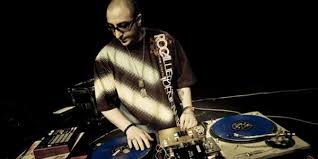
Luckily, some of the guys who were the veterans have stayed in the game. DJ Lethal Skilz, the finest turntableist in the Arab world, who has had to relocate to Kuala Lumpur because he can't make a living doing it here. Then you have Rayess Bek, part of a group called Aks’ser that surfaced in the late 90s and early 2000s. There's a video of them in 1998, the very first Lebanese hip-hop video, with a young DJ Lethal Skilz in it. This is a tradition that if that wasn't there, most of these young kids would have no idea that there was a veteran crew of people trying to do things, and struggling just like them in the same ways. You have Eslam Jawad, the Syrian/Lebanese rapper who had to move to England, and now still collaborates quite heavily with Damon Albarn, former Blur front man, the Gorillaz, the Good the Bad and the Queen, all of his group incarnations. This is a Lebanese American rapper that brought the Gorillaz to Lebanon and Syria in 2010.
Most people don't, most youngsters know about him, but they don't really know his history. They don't know much about the group Kita3 Beirut, Sector Beirut, because the idea is, again, now everything is being documented.
B.E.: So is that changing the game?
J.A.: That is changing the game in the last 45 years. That is changing the game. Since 2008, roughly. 2007, 2008.
B.E.: So what is the effect of that?
J.A.: The effect of that is to create a tradition, or a sense of tradition that didn't exist before. Though it's sad to say, a lot of these veterans didn't get the props they deserve. And as in hip-hop in America, there's not necessarily the veneration of older emcees from the rappers that are coming up, because they want to be better. Tupak. Biggie. Whatever. The idea is that I'm gonna be the next big thing.
There’s a young brand of emcees coming out of Lebanon. There are these little structures that are set up in the way of venues and events, that have popped up. It's less sporadic than it used to be.
B.E.: Talk about the performance side of things.
J.A.: There's the poetry event called Hekile, which is sort of like the slam poetry events of the United States. It brings poets and emcees into the same room, all doing a form of poetry together. Hekile was run by one of the veteran emcees, if you will. His name is Edda Abbas, MC Ed. He is part of a live Lebanese hip-hop crew called Fareeq el Atrash, which is a play on Farid al Atrach, the singer, composer, actor. Ed is one of the two rappers of that group. Ed started this poetry thing called Hekile, which has grown over the past five years.
And then there are other events. The ideas there's a Monday night hip-hop event at the venue called Radio Beirut now. That used to happen at a vinyl only bar called the Flip Side, in the same area. Now it's a chance for young emcees to come and showcase their skills, maybe for the first time. So like Project Blowed in LA, or any number of freestyle, the battle oriented free spots. You get the point.
B.E.: It's a platform. And it has regularity. What does Hekile mean?
J.A.: Hekile is the speech. It's kind of like that. That happens once every couple of months. The Radio Beirut thing happens every Monday. So there are slightly more venues now, and there's more regularity of hip-hop performances happening locally, in cities around Lebanon, and here in Beirut, despite what happens with the political upheaval that occurs here. Actually, that adds fuel to their fire more than it kills their energy. They use this as a classic means of working through the issues that are occurring.
B.E.: What are they rapping about?
J.A.: You can talk about El Rass, Mazen el Sayyed. He's got a song called "Yoga," which is a sort of a tome on violence. The term itself yoga is meant to imply a sort of peacefulness. And actually, he's trying to show in this song why violence isn't viable, but he does it in a way where if you're not paying attention, you think is an all-out advocate for this kind of violence that is occurring around.
B.E.: He's being ironic.
J.A.: He is being ironic. Look, when it comes to these lyrics, we have to understand that there is a glass ceiling. You mentioned that Lebanon has more of a tradition of freedom. But that doesn't mean that it's free. There is a glass ceiling. There are certain things that you don't talk about. Like the abuse of domestic workers, or the racism that's here. Guys like Edda Abbas from Fareeq el Atrash who is half Côte d'Ivoirean. He's got family from Côte d'Ivoire and family from Lebanon. He's one of these mixed Lebanese that is dealing actively with the idea of racism. And he's dealing with it in his lyrics. But most of what happens lyrically is the same thing that happens lyrically in many other poetic traditions. Is the use of metaphor, or the use of analogy.
And so when you're asking for specifics, Aks’ser, the name of the group, means "do not enter." It's an illegal pathway. So there is a play on words right there. So specific songs, in Lebanon you have intehabet, which is like an election. And then there's Malika, the only working female emcee in the Arab world. She's living in Dubai. But one of her songs "Intihabet" is also the title of a Fareeq el Atrash song, but they're talking about the corrupt system of democracy that exists in this country. They are talking about the sectarian nature of politics in this country. They are not naming names. But, if anyone knows anything about what's happening with the Lebanese state, it's not going to take much to infer. It's not going to take much to figure out what's happening.
B.E.: Are these artists facing censorship? Or are these artists so invisible that it just doesn't matter?
J.A.: This is the good question, right? And this is the question that I asked them, and I have been asking them for four years. Are you willing to go to jail for your art? I mean, it's all well and good to be talking about this stuff, but it's a put up or shut up kind of situation. And unequivocally, almost all of them have said yes. Now I'm not sure they really understand the ramifications of what I'm asking, or what they're saying that they would definitely do for their artistic integrity.
B.E.: Is this because of the invisibility?
J.A.: Yes. Let's be honest, this is not a populist movement.
B.E.: But if there was that kind of radical guerrilla radio that I was fantasizing about earlier, and it was playing their stuff, and it was getting written about, it was more visible, maybe they would be getting more unwanted attention.
J.A.: That's exactly the point. The idea is that as this gets more popular, my contention—and this is part of my book—is that the next battle for the Arab rap movement is the battle of free expression. The battle of free speech. Whether they know it or not, they are heading for that battle. It is inevitable. If just by increments, as their little scenes grow, it’s going to be two times larger in two years, five times larger in eight years. Who knows? Who knows the formula for describing it?
B.E.: Tell me about a few more songs you find interesting.
J.A.: Let’s look at "Islamology" from El Rass. It's his take on his relationship to Islam, which is more of a Sufi interpretation of Islam. But if you were to go into the actual description, and if you were even remotely orthodox in your in Islamic ideology, or your Islamic beliefs, this would be absolute blasphemy. Because he is saying that his religion is his own. His personal experience with Islam is his own. So he's taking it into a less literal interpretation of the Koran and using the Sufi interpretation of that to mean, it's experiential to me. My God is mine. And therefore, that's what I adhere to. And that is a difficult thing to push. Let's say, in Egypt, that might not go over so well. In Lebanon, because there isn't a groundswell of popular listenership there, that's not necessarily being heard.
There's a track by a young Lebanese rapper who is actually one of the more controversial rappers, and probably I consider the most overall talented rapper, producer. Arranger. His name is Ramcees el Hamurabi. Ramcees is in France right now. He dropped his third album, and this is a guy who's incredibly young, 22. But he's been longer on the scene than most, because he was this young whippersnapper of a kid. At 12 or 13 years old, he was unbelievably eager, seeing the older guys, how do you do that and the other. He's got some tracks. Let me give you an example.
He’s got another "Intihabet," the idea of the elections process, the democratic process. He's talking specifically about dynamics that exist with the caretaker government, not the Hezbollah side of things, who can now say they are the controlling factor in government. But at the time he was writing this, it was the exact opposite. It was the Western backed side of things, represented by Rafiq and Saad Hariri. He's calling out this representation of a political system that doesn't represent the people, the shaabi, or doesn't represent the social and economic interests of the poor, and these kinds of issues, based on the fact that he's from Ras al Naba, which is a very mixed neighborhood that's in constant conflict between the Shiite elements in the Sunni elements. If this stuff is pumped into his neighborhood, it's not necessarily going to go over well with the Sunni elements of this neighborhood.
These two songs, "Intihabet" from Ramcees and "Islamology" from El Rass, represent these highly intelligent social critiques of a highly complicated system that is Lebanon. From both a sectarian perspective, and a perspective related to straight up economics. Based on who has and who has not. There are a lot more examples I can give, but when you're talking about the dynamic nature of the lyricism that is coming from the Lebanese hip-hop scene, the litmus test for them is: “Are you aware of this? And are you talking about it from your perspective? And how good are you talking about it from your perspective? Because there's still a scene here. And we are going to critique you.” So. there's an active critique coming from the up-and-coming emcees themselves, as well as the more well-known elements of the scene.
To talk about the more well-known elements of the scene from the past, you have to bring up Rayess Bek, who still comes to Lebanon from France to perform. Though he is respected, he's not necessarily seen in the same camaraderie as the people who are based here. He is kind of seen as someone who can talk about highly political issues. That's fine and good, but that's because you are in France. Then, you have to add Fareeq al Atrash. Older than that, you're talking about people like Malika, the female rapper I was talking about earlier. You have also MC Mo, who is in France at the moment, also for work. If you’re talking about other emcees, there is RGB, a rapper who was part of a group called Kita3 Beirut. He had a record contract with LCI. They in essence imploded as an organization and did not release this full-length album with music videos that were shot with high budgets. It died. Absolutely died.
So in essence, when it died, RGB had an absolute implosion. He and he's not active in the scene anymore. A lot of these young heads don't even know who he is, and that's a shame. But you have these kind of veteran elements, like DJ Lethal Skilz, the turntable/producer element that was uniting a lot of this together. And then, you have to add Chino, who now raps with Fareeq el Atrash, and represented a bridge between the old and the new. You have El Rass, Mazen al Sayyed. Who else? You have guys like Double A, an English rapper who's part of the scene and does a lot of these hodgepodge freestyles. He hosts the Monday night sessions over at Radio Beirut now.
There's another whole tradition that was started here in Lebanon I should mention. It’s called Fus Hop. These are rappers who are rhyming in fus-ha, classical Arabic. The first to do it was a group called Blood Wasted, from the mid-to-late 90s. Particularly a fellow who, as it stands now, is completely inactive, an unknown element of the scene, though he still lives here. His name is Mars or Omarz. He used to be called Curly back in the day, in the late 90s early 2000s. So this is an idea that was put forward by a small group of rappers. El Rass tends to do his rapping in fus-ha, or variations of fus-ha with local dialect thrown in as peppering, or flavoring on top of his lyricism.
B.E.: The significance of that is that you're addressing a much larger audience, right?
J.A.: You are addressing, theoretically, 22 Arab countries. But again, that's not quite accurate either. It's theoretical. Potentially, it's there. But that's not what the shaabi understand. They don't speak fus-ha. It's like you were speaking Shakespearean English to them if you were to come up to them and rap in fus-ha. And let's be honest. A lot of the Arab world is illiterate. So it's not like even have this classic Koranic understanding of fusha. It's more memorization and such. El Rass is probably the best lyricist in the Arab movement right now. He’s pan Arab, because of the intricacy, and because this guy is a journalist and because he's a poet, and because he comes from a very broad musical background.
He's not a producer. He's learning to do that now. That’s another thing is important to understand about Arab rap in the DIY sense. They are now all producing for themselves. They are all learning the tools of the trade. They're all learning that if it's the sound that I want, I think I'm gonna have to be the one to do it. So there's very little that they're not understanding in order to make their own music the way they want to.
B.E.: Thanks so much for this. I consider this a beginning of a much longer conversation, and I look forward to continuing it.








